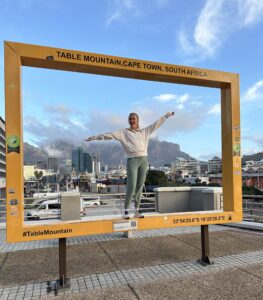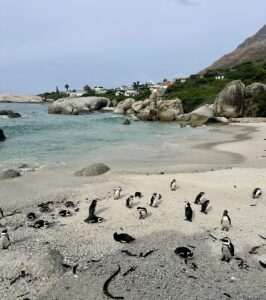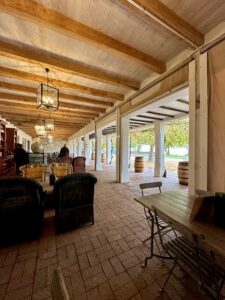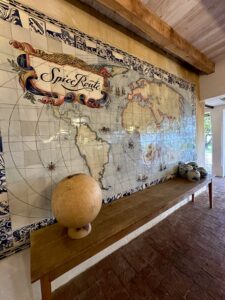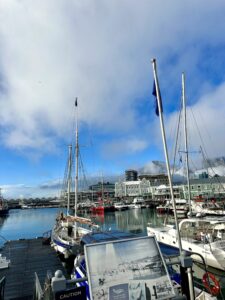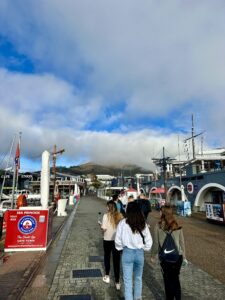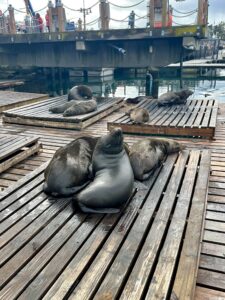After spending approximately a week abroad, I’ve had the privilege of immersing myself in a foreign culture and lifestyle. The hospitality extended by everyone I’ve encountered has been exceptional, fostering a welcoming atmosphere for our group. During a particularly enlightening conversation with a restaurant server, we got to hear about her experience serving travelers from around the world. I found it extremely interesting that she said Americans are very similar to South Africans in the sense that we are open minded and willing to talk to anyone. She loved our willingness to learn from her and attempt to learn a bit of Afrikaans, one of South Africa’s many official languages. Additionally, our culinary exploration introduced us to a rich tapestry of traditional South African dishes, particularly notable for their emphasis on seafood, as Cape Town is a coastal city. It was fun trying different fish that we don’t eat back in the United States such as Hake fish and KingKlip. Cape Town’s distinctive landscape, merging urban development with the imposing presence of Table Mountain against the backdrop of the ocean is extremely unique. The city’s layout, characterized by its mix of modern urban centers, townships, and informal settlements, contrasts with the sprawling suburban landscapes common in many American cities. I think the most comparable city in the United States is San Francisco, but nothing truly compares. Furthermore, I was struck by the city’s impeccable cleanliness! The streets and city were spotless. When we drove to the airport to leave for Zambia at 4:00 am, there were workers cleaning the streets, which I have not witnessed in the United States. Overall, while Cape Town and the United States share some similarities, such as their vibrant cultures and diverse populations, they also exhibit striking differences in history, geography, urban development, social dynamics, and economic realities.

